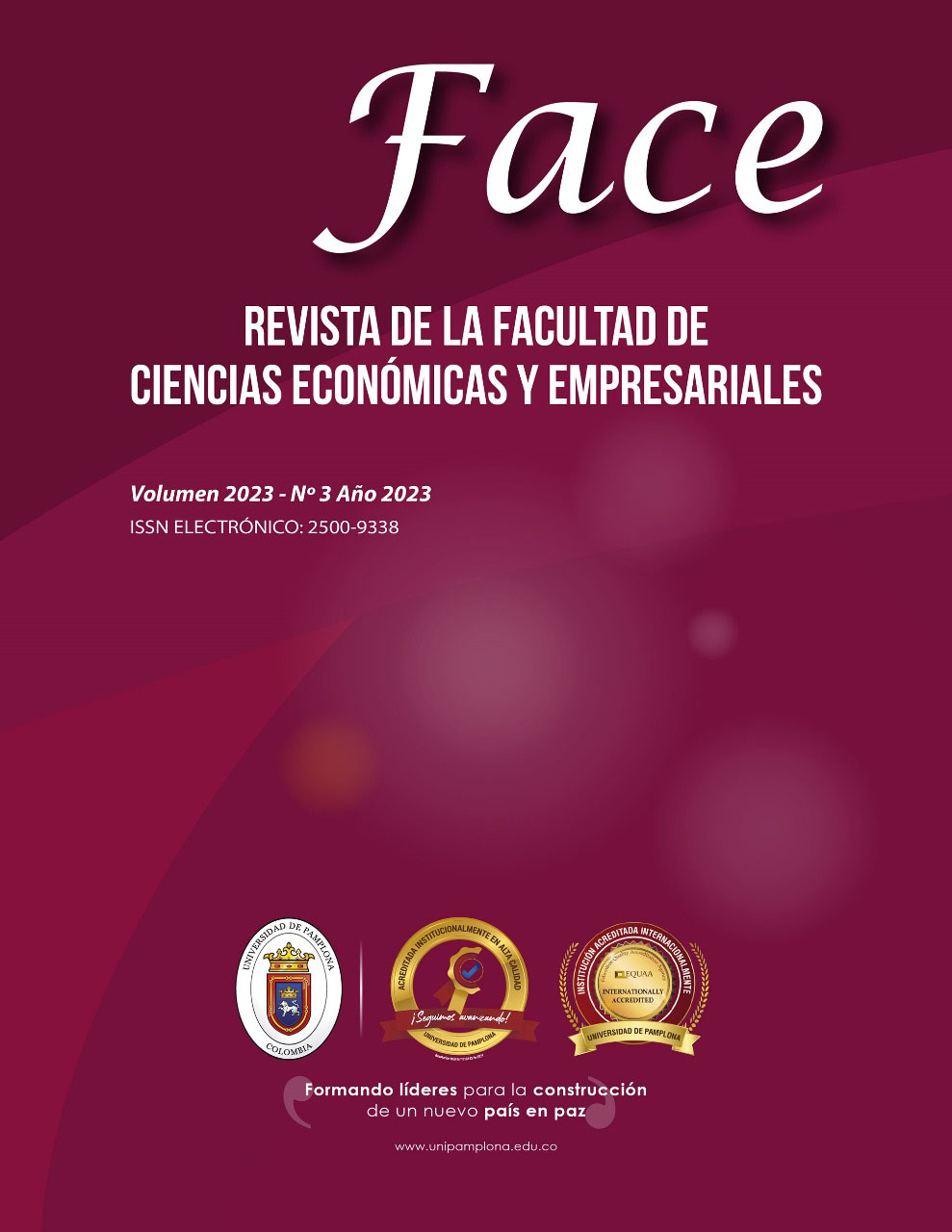6 KNOWLEDGE AND LEARNING, AS SUCCESS FACTORS IN THE DYNAMISM OF THE OWNERS OF MICRO ECONOMIC UNITS
DOI:
https://doi.org/10.24054/face.v23i3.2611Keywords:
Tacit knowledge, Micro Economic Units, Business trajectory, EntrepreneurshipAbstract
The result of 10 years of research work with 243 cases of Economic Units (EU), dynamic or capitalist and subsistence located in
Tlaxcala, Mexico (Hernández, 2002), has left evidence that contributes to discovering where entrepreneurs in Tlaxcala learn and How is it that the owners of said UEs have acquired knowledge and learning in business informally or tacitly (which have contributed to achieving success (Hernández, 2002). The objective is to identify the business origins of the owner and the possible influence exerted by the place of birth and/or residence in the construction of knowledge and learning, to know if such learning translated into business knowledge with sustainable and dynamic organizational, productive and economic implications or only subsistence in the State of Tlaxcala. The study mixed, based on a semi-structured interview, seeks to rely on the assumptions of the hypothesis of Lundvall and Lorenz (2010), who propose that the place and circumstances where the agents participate are significant for the construction of learning and knowledge that become in the main basis of economic dynamism. Findings are obtained that make the influence of social knowledge on entrepreneurship relevant, above informal education by developing business skills based on tacit knowledge, this despite the fact that successful entrepreneurs with dynamic EU have a high level of schooling, for example. above the survival UE owners. The study suggests that how and where an entrepreneur's learning has occurred does not necessarily condition or limit its transformation into business knowledge with broader organizational, productive and economic implications; However, it is demonstrated that the experience and influence of larger cities are decisive in generating successful and sustainable EUs over time; Also, the need to make formal education more efficient in promoting dynamic entrepreneurship is raised.
Downloads
References
Coraggio, José Luis (2000), “La relevancia del desarrollo regional en un mundo globalizado”.Ponencia presentada al Seminario Taller Internacional: Cultura y desarrollo; la perspectiva regional/local, organizado por el Instituto Andino de Artes Populares del Convenio Andrés Bello (IADAP), Quito, Ecuador, pág.12.
Cowan, Robin; David, Paul and Foray, Dominique (2000), “The explicit economics of knowledge codification and tacitness”, Industrial and corporate change, Vol.9, No.2, pp. 211-254.
David, Paul and Foray, Dominique (2003), “Economic Fundamentals of the Knowledge Society”, Policy Futures in Education, Volume 1, Number 1, pp. 20-49.
Davidsson, Per. (1995), “Determinants of Entrepreneurial Intentions”, In Rent XI Workshop, Piacenza, Italy, pp.1-31. DENUE (2021), Directorio Estadístico Nacional de Unidades Económicas, INEGI, México.
Dutrénit, Gabriela (2009), “Introducción”, en Dutrénit, Gabriela (coord.), Sistemas regionales de innovación: un espacio para el desarrollo de las PYMES. El caso de la industria de maquinados industriales, MPRA-UAMXochimilco, México, pp.7-19.
ENAMIN (2008) Encuesta Nacional de Micro Negocios,STPS-INEGI
Evans, David and Leighton, Linda. (1990), “Small business formation by unemployed and employed workers”, Small Business Economics 2, pp.319–330.
Evans, David and Leighton, Linda. (1989), “Some Empirical Aspects of Entrepreneurship”, The American Economic Review, Vol. 79, No. 3, pp. 519-535.
Foray, Dominique and Hargreaves, David. (2003), “The Production of Knowledge in Different Sectors: A model and some hypotheses”, London Review of Education, Vol. 1, Issue 1, pp. 7-19.
Hernández, Edgar; Gallardo, Nadeska, Torrejón, Luz María P. (2022). Cualidades intrínsecas determinantes del éxito en los emprendedores de Tlaxcala. Revista GEON, Gestión, Organización y Negocios. Colombia. https://doi.org/10.22579/23463910.764
Hildreth, Paul and Kimble, Chris (2002), “The duality of knowledge”, Information Research, Vol.8, No.1, en http://informationr.net/ir/8-1/paper142, 2 junio, 2012.
INEGI (2021), Censo General de Población y Vivienda 2020, INEGI, México.
Lave, Jean and Wenger, Etienne (1991), Situated Learning: Legitimate Peripheral Participation. Ed. Cambridge University Press, Cambridge, pp.11-131.
Lee, Jennifer. (2001), “Entrepreneurship and business development among African Americans, Koreans, and Jews: exploring some structural differences”, in Cordero-Guzmán, H. R. (Ed.), Migration, Transnationalization, and Race in a Changing New York, pp. 258–278. Temple University Press, Philadelphia.
Lee, Sam Youl; Florida, Richard and Acs, Zoltan. (2004), “Creativity and Entrepreneurship: A Regional Analysis of New Firm Formation”, Regional Studies, 38:8, 879-891.
Lundvall, Bengt Ake y Lorenz, Edward (2010), “Innovación y desarrollo de competencias en la economía del aprendizaje. Implicaciones para las políticas de innovación”, en Parrilli, M. D. (coord.), Innovación y Aprendizaje: Lecciones para el diseño de políticas, Innobasque, País Vasco, pp. pp.6-438.
Manual de Oslo (2006), Guía para la recogida e interpretación de datos sobre innovación, Ed. Tragsa, 3a edición, OCDE-Eurostat, España,
pp.1-188.
Nonaka, Ikujiro and von Krogh, Georg (2009), “Tacit Knowledge and Knowledge Conversion: Controversy and Advancement in
Organizational Knowledge Creation Theory”,Organization Science, Vol.20, No. 3, pp. 635– 652.
Polanyi, Michael. (1966), The Tacit Dimension. Doubleday, New York.
Vera-Cruz, Alexandre, and Dutrénit, Gabriela. (2005), “Spillovers from MNCs through worker mobility and technological and managerial capabilities of SMEs in Mexico”, Innovation: Management, Policy & Practice, Vol. 7, (2-3), pp. 274-297.
Wenger, Etienne (1998), Communities of Practice: Learning, Meaning, and Identity, Ed. Cambridge University Press, Cambridge, pp.1-309.
Downloads
Published
Versions
How to Cite
Issue
Section
License
Copyright (c) 2023 FACE: Revista de la Facultad de Ciencias Económicas y Empresariales

This work is licensed under a Creative Commons Attribution-NonCommercial-ShareAlike 4.0 International License.





